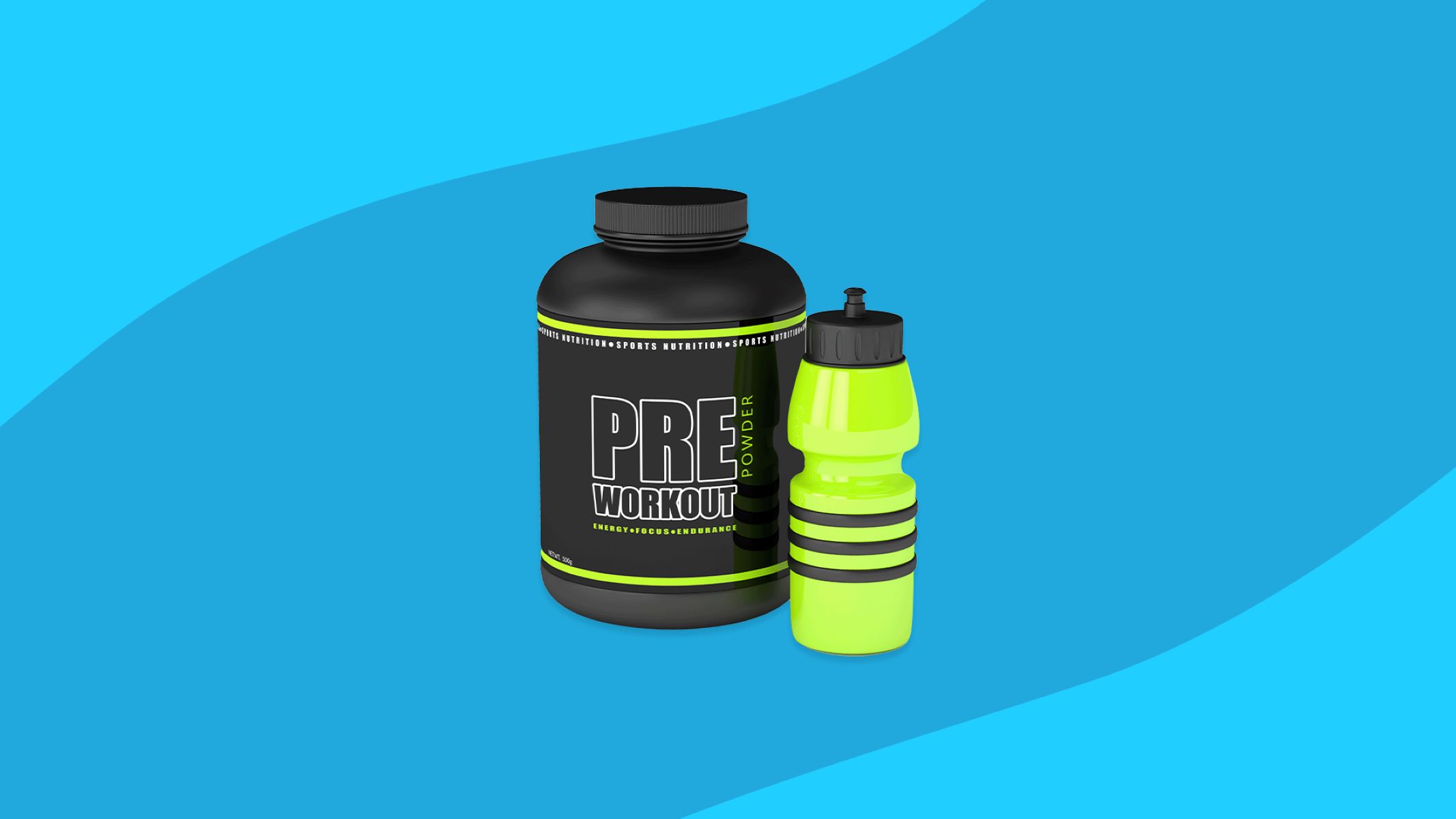Home>Misc>Featured>Which Supplement Has Been Used To Promote Weight Loss And To Improve Athletic Performance?


Featured
Which Supplement Has Been Used To Promote Weight Loss And To Improve Athletic Performance?
Modified: January 2, 2024
Looking for a supplement to promote weight loss and enhance athletic performance? Discover the featured supplement that has been widely used for these benefits.
Introduction
Supplements have become increasingly popular in the health and fitness industry, promising a wide range of benefits including weight loss and improved athletic performance. With so many options available, it can be overwhelming to determine which supplement is the most effective and safe.
In this article, we will explore ten supplements that have been commonly used to promote weight loss and enhance athletic performance. From caffeine to whey protein, we will dive into the science behind each supplement and examine their potential benefits, as well as any potential risks or side effects.
It is important to note that while supplements can certainly play a role in supporting health and fitness goals, they should never be considered a magic solution. It is essential to combine their use with a well-balanced diet, regular exercise, and a healthy lifestyle in order to maximize their effectiveness.
Before incorporating any supplement into your routine, it is advisable to consult with a healthcare professional or a registered dietitian. They can provide personalized advice based on your specific needs, health conditions, and goals, ensuring that you make informed decisions.
Now, let’s delve into the world of supplements and discover which ones may be the right fit for you on your weight loss journey or athletic pursuits.
Supplement 1: Caffeine
Caffeine is a naturally occurring stimulant found in coffee, tea, and chocolate. It is known for its ability to increase alertness, improve focus, and provide an energy boost. In addition to these benefits, caffeine has been shown to have some potential effects on weight loss and athletic performance.
One of the ways caffeine may assist in weight loss is through its thermogenic properties. It has been found to increase metabolism and enhance fat oxidation, leading to a slight increase in calorie expenditure. However, the effects are modest, and they are most pronounced in individuals who are not regular caffeine consumers.
Moreover, caffeine has also been shown to improve exercise performance. It can enhance endurance by reducing the perception of effort and delaying fatigue. Additionally, it may increase anaerobic performance, allowing individuals to perform at a higher intensity for a longer duration.
However, it is important to note that the effects of caffeine on weight loss and performance can vary from person to person. Some individuals may be more sensitive to the effects of caffeine, while others may not experience any noticeable benefits. It is also essential to be mindful of the recommended daily caffeine intake and avoid excessive consumption, as it can lead to side effects such as jitteriness, increased heart rate, and difficulty sleeping.
Caffeine can be consumed through various sources, including coffee, tea, energy drinks, and supplements. The optimal dosage for performance enhancement is typically around 3-6 mg per kilogram of body weight, taken around an hour before exercise. However, it is recommended to start with a lower dose to assess individual tolerance and make adjustments accordingly.
In summary, caffeine has the potential to enhance weight loss efforts and improve athletic performance. However, it is important to approach its consumption with moderation and personalization. Consulting with a healthcare professional or a registered dietitian can help determine the appropriate dosage and usage based on individual needs and circumstances.
Supplement 2: Green Tea Extract
Green tea extract is derived from the leaves of the Camellia sinensis plant and is known for its rich antioxidant content. It has gained popularity as a weight loss supplement due to its potential fat-burning and metabolism-boosting properties.
The active compounds found in green tea extract, such as catechins and caffeine, have been studied for their effects on weight loss. Catechins have been shown to increase fat oxidation and thermogenesis, which can help the body burn more calories. Additionally, the combination of catechins and caffeine may have a synergistic effect on metabolism, further enhancing weight loss efforts.
Some studies have found that green tea extract can help reduce body weight, body fat percentage, and waist circumference. However, it is important to note that the effects are generally modest and may vary among individuals. Green tea extract alone is unlikely to lead to significant weight loss but can be a helpful addition to a balanced diet and exercise routine.
In addition to its potential weight loss benefits, green tea extract has also been associated with improved athletic performance. It has been found to increase endurance, enhance fat oxidation during exercise, and improve exercise-induced muscle damage and recovery. These effects are believed to be due to the combination of catechins and caffeine in green tea extract.
When considering green tea extract as a supplement, it is important to choose a high-quality product from a reputable source. The dosage can vary depending on the concentration of active compounds, but a typical dose ranges from 300 to 400 mg per day. It is recommended to take the supplement in divided doses throughout the day to maximize its effects.
It is worth mentioning that green tea extract may not be suitable for everyone. Individuals who are sensitive to caffeine or have certain health conditions, such as heart problems or anxiety disorders, should exercise caution and consult with a healthcare professional before starting green tea extract supplementation.
To summarize, green tea extract has the potential to support weight loss efforts by increasing metabolism and fat oxidation. It may also improve athletic performance and recovery. However, results may vary among individuals, and it is important to use green tea extract as part of an overall healthy lifestyle, including a balanced diet and regular exercise.
Supplement 3: Garcinia Cambogia
Garcinia Cambogia is a tropical fruit that contains a compound called hydroxycitric acid (HCA). This extract has gained popularity as a weight loss supplement due to its supposed appetite-suppressing and fat-blocking effects.
The primary claim behind Garcinia Cambogia’s weight loss benefits is its ability to inhibit an enzyme called citrate lyase, which is involved in the production of fat. By blocking this enzyme, it is believed to prevent the storage of excess calories as fat, thereby potentially leading to weight loss.
Furthermore, some studies suggest that Garcinia Cambogia may increase serotonin levels in the brain. Serotonin is a neurotransmitter that plays a role in regulating hunger and satiety. By increasing serotonin levels, it is believed to curb cravings and reduce appetite, ultimately promoting weight loss.
However, it is important to note that the evidence supporting the effectiveness of Garcinia Cambogia for weight loss is mixed. Some studies have shown modest weight loss benefits, while others have found no significant effects. The quality of the supplement and individual factors, such as diet and exercise, may also influence the outcomes.
In terms of safety, Garcinia Cambogia is generally considered to be well-tolerated when taken in recommended doses. However, there have been reports of gastrointestinal symptoms such as nausea, diarrhea, and abdominal discomfort. It is advisable to start with a lower dosage and monitor any potential side effects.
It is important to keep in mind that Garcinia Cambogia supplements are not a quick fix for weight loss. They should be used as part of a comprehensive weight management plan that includes a balanced diet, regular physical activity, and lifestyle modifications.
Before starting any new supplement, it is crucial to consult with a healthcare professional or a registered dietitian. They can provide personalized advice and ensure that Garcinia Cambogia is safe and suitable for your individual circumstances.
In summary, Garcinia Cambogia may have some potential benefits for weight loss due to its effects on fat production and appetite regulation. However, more research is needed to determine its effectiveness and long-term safety. It is important to approach Garcinia Cambogia supplementation with caution and incorporate it into a holistic approach to weight management.
Supplement 4: Conjugated Linoleic Acid (CLA)
Conjugated Linoleic Acid (CLA) is a type of fatty acid found naturally in meat and dairy products. It has gained attention as a supplement for its potential effects on weight loss and body composition.
CLA is believed to work by increasing the body’s metabolic rate and promoting the breakdown of stored fat. It may also inhibit the activity of certain enzymes involved in fat storage, leading to a decrease in overall fat accumulation.
Several studies have investigated the effects of CLA on weight loss and body composition. While some research suggests that it may lead to modest reductions in body fat and weight, the results are not consistent across all studies. Individual factors such as diet, exercise, and genetics may influence the response to CLA supplementation.
Furthermore, CLA has been shown to have potential health benefits beyond weight loss. It may have anti-inflammatory properties, improve insulin sensitivity, and support cardiovascular health. However, more research is needed to fully understand these effects and their implications.
It is important to note that CLA supplements are available in different isomer forms, such as cis-9, trans-11 and trans-10, cis-12. The isomer composition is believed to influence the effectiveness of CLA for weight loss. The most studied and commonly used form is a mix of both cis-9, trans-11 and trans-10, cis-12 isomers.
When considering CLA supplementation, it is crucial to choose a high-quality product from a reputable source to ensure purity and potency. The recommended dosage of CLA typically ranges from 3-6 grams per day, taken with meals. It is important to follow the instructions on the product label and consult with a healthcare professional if you have any specific health concerns.
It is worth noting that CLA supplements may not be suitable for everyone. Individuals with existing health conditions, such as diabetes or liver disease, should exercise caution and seek medical advice before starting CLA supplementation.
In summary, CLA supplements have been studied for their potential effects on weight loss and body composition. While results are mixed, there is some evidence to suggest that CLA may have modest benefits. However, individual response may vary, and it should be used in conjunction with a balanced diet and regular exercise for optimal results. Consulting with a healthcare professional is recommended before starting CLA supplementation.
Supplement 5: Creatine
Creatine is a naturally occurring compound found in small amounts in foods such as meat and fish. It is also available as a popular dietary supplement used to enhance athletic performance and support muscle growth.
Creatine works by increasing the production of ATP (adenosine triphosphate), which is the primary source of energy for muscle contractions. By increasing ATP levels, creatine supplementation can improve strength, power, and short-term high-intensity exercise performance.
Several studies have demonstrated the benefits of creatine supplementation for athletes and individuals engaging in high-intensity, explosive activities. It has been shown to enhance muscular strength and power, increase exercise capacity, and accelerate recovery between bouts of intense exercise.
In addition to its performance-enhancing effects, creatine supplementation may also promote muscle growth and improve body composition. It acts as an osmolyte, drawing water into muscle cells and causing them to swell, which can contribute to an increase in muscle size and volume.
Creatine is considered safe when taken within the recommended dosage range of 3-5 grams per day. However, it is important to note that individual response to creatine supplementation may vary, and some individuals may experience gastrointestinal symptoms or weight gain due to increased water retention.
It is worth mentioning that creatine supplementation is most effective for activities that require short bursts of intense energy, such as weightlifting, sprinting, and jumping. Its benefits for endurance activities, such as long-distance running or cycling, are less pronounced.
It is important to consult with a healthcare professional or a registered dietitian before starting creatine supplementation, especially if you have any pre-existing health conditions or are taking medications. They can provide guidance on the appropriate dosage, duration of use, and potential interactions with other substances.
In summary, creatine supplementation can be a valuable tool for athletes and individuals involved in high-intensity, explosive activities. It can improve strength, power, and exercise performance while supporting muscle growth and recovery. However, it may not be necessary or effective for everyone, especially those engaged in endurance sports. Consulting with a healthcare professional is recommended to ensure safe and appropriate use of creatine supplements.
Supplement 6: Beta-Alanine
Beta-Alanine is a non-essential amino acid that is naturally produced in the body. It has gained popularity as a dietary supplement due to its potential effects on enhancing exercise performance and reducing muscle fatigue.
When consumed, beta-alanine is converted into carnosine, a molecule that helps buffer the build-up of acid in the muscles during intense exercise. By increasing carnosine levels, beta-alanine supplementation can delay the onset of fatigue and improve muscular endurance.
Several studies have demonstrated the benefits of beta-alanine supplementation, especially for high-intensity, repetitive activities lasting between 1 and 4 minutes. It has been shown to improve performance in activities such as weightlifting, sprinting, and team sports that involve short bursts of intense effort.
In addition to its effects on performance, beta-alanine may also have potential benefits for promoting muscle growth. By delaying fatigue, it allows individuals to perform more reps or lift heavier weights, leading to greater mechanical stress on the muscles and potentially stimulating muscle growth.
The recommended dosage for beta-alanine supplementation is typically between 2 and 5 grams per day, divided into smaller doses throughout the day. It is common for individuals to experience a tingling sensation, known as paresthesia, after consuming beta-alanine. This sensation is harmless and temporary.
It is important to note that beta-alanine supplementation is most effective when combined with regular exercise training. It is not a substitute for proper training, nutrition, and rest. Therefore, it is recommended to incorporate beta-alanine into a well-rounded fitness program that includes appropriate exercise and recovery protocols.
Individuals with certain health conditions, such as kidney problems or a history of gout, should exercise caution and consult with a healthcare professional before starting beta-alanine supplementation. Additionally, beta-alanine may interact with certain medications, such as anti-diabetic drugs, so it is important to seek medical advice if you are taking any medications.
In summary, beta-alanine supplementation can be a valuable tool for improving exercise performance, especially for high-intensity, repetitive activities. It can delay muscle fatigue and enhance muscular endurance. However, it should be used in conjunction with proper training and a well-balanced diet. Consulting with a healthcare professional is recommended to ensure safe and appropriate use of beta-alanine supplements.
Supplement 7: Branched-Chain Amino Acids (BCAAs)
Branched-Chain Amino Acids (BCAAs) are a group of three essential amino acids: leucine, isoleucine, and valine. They are known for their role in muscle protein synthesis and have gained popularity as a supplement for enhancing exercise performance, reducing muscle damage, and promoting muscle recovery.
BCAAs are unique because they are metabolized directly in the muscles instead of the liver, making them readily available for energy production during exercise. This quick availability of BCAAs can help prevent muscle breakdown and promote muscle protein synthesis, which is essential for muscle growth and repair.
Several studies have shown that BCAA supplementation can benefit exercise performance and muscle recovery, particularly in endurance sports and resistance training. BCAAs can help reduce muscle fatigue, improve endurance, and decrease muscle soreness following intense exercise bouts.
Additionally, BCAAs may have the potential to improve body composition by supporting fat loss while preserving lean muscle mass. This can be particularly beneficial for individuals who are trying to lose weight or maintain muscle during a calorie deficit.
BCAA supplements are available in various forms, including powders, capsules, and flavored drinks. The recommended dosage typically ranges from 5 to 20 grams per day, depending on factors such as body weight, exercise intensity, and individual needs. It is generally recommended to take BCAAs before, during, or after exercise to support muscle recovery and performance.
While BCAA supplements are generally considered safe, it is important to note that they should not be seen as a substitute for a well-balanced diet that provides an adequate supply of all essential amino acids. Whole food sources such as lean meats, poultry, fish, eggs, and legumes are also rich in BCAAs and should form the foundation of a balanced diet.
Individuals with certain health conditions, such as liver disease or maple syrup urine disease, should avoid BCAA supplementation or seek medical advice before use. Additionally, it is essential to consider the overall protein intake, as excessive BCAA supplementation without a sufficient total protein intake may not provide significant benefits.
In summary, BCAA supplementation may enhance exercise performance, support muscle recovery, and promote muscle protein synthesis. However, it should be used in conjunction with a well-balanced diet and regular exercise. Consulting with a healthcare professional or a registered dietitian is recommended to determine the appropriate dosage and ensure safe use of BCAA supplements.
Supplement 8: Whey Protein
Whey protein is a popular dietary supplement known for its high protein content and fast absorption rate. It is derived from milk and is considered a complete protein, meaning it contains all nine essential amino acids necessary for muscle growth and repair.
Whey protein is commonly used by athletes and fitness enthusiasts to support muscle recovery, promote muscle growth, and enhance exercise performance. It is particularly beneficial for individuals engaged in resistance training or other forms of intense physical activity.
The main advantage of whey protein is its high bioavailability, which means it is easily and rapidly absorbed by the body. This allows for the quick delivery of amino acids to the muscles, facilitating muscle protein synthesis and aiding in the repair of exercise-induced muscle damage.
Several studies have demonstrated the benefits of whey protein supplementation. It has been shown to enhance muscle strength, increase muscle mass, and improve body composition when combined with resistance training. It may also help reduce post-exercise muscle soreness and speed up recovery.
Additionally, whey protein has been found to be effective in promoting satiety and supporting weight loss efforts. It can help control hunger, reduce calorie intake, and preserve lean muscle mass during periods of calorie restriction or weight loss.
Whey protein supplements come in various forms, including powders, ready-to-drink shakes, and protein bars. The recommended dosage and timing of consumption may vary based on individual needs and goals. It is often recommended to consume whey protein within 30 minutes to one hour after exercise to maximize its benefits.
It is important to note that whey protein supplements are generally safe for most individuals. However, those who are lactose intolerant or have dairy allergies should choose a whey protein isolate or a plant-based alternative. Additionally, individuals with kidney disease or other medical conditions should consult with a healthcare professional before starting whey protein supplementation.
In summary, whey protein is a highly effective and convenient supplement for muscle recovery, growth, and improved exercise performance. It can also aid in weight management and support satiety. Incorporating whey protein into a well-balanced diet and exercise routine can provide optimal results. Consulting with a healthcare professional or a registered dietitian is recommended to determine the appropriate dosage and ensure safe use of whey protein supplements.
Supplement 9: L-Carnitine
L-Carnitine is a naturally occurring amino acid derivative that plays a crucial role in energy metabolism. It is involved in the transportation of fatty acids into the mitochondria, where they are broken down and converted into energy. Because of its function in fat metabolism, L-Carnitine has gained attention as a potential supplement for weight loss and athletic performance enhancement.
L-Carnitine supplementation has been shown to increase the oxidation of fatty acids during exercise, potentially leading to improved fat utilization and greater energy production. This has sparked interest in its use as a supplement for promoting weight loss.
Several studies have investigated the effects of L-Carnitine supplementation on body composition and weight loss. While some research suggests that it may have a modest impact on reducing body fat and improving weight loss, the results are not consistent across all studies. Individual response to L-Carnitine supplementation may vary.
In terms of athletic performance, L-Carnitine has been studied for its potential effects on endurance and recovery. It has been shown to enhance exercise tolerance, delay the onset of fatigue, and improve post-exercise recovery markers such as reduced muscle damage and decreased muscle soreness.
It is important to note that the benefits of L-Carnitine supplementation may be more significant for individuals who are deficient in L-Carnitine or have certain medical conditions that affect its metabolism. For individuals with normal L-Carnitine levels, the effects of supplementation may be less pronounced.
The optimal dosage of L-Carnitine supplementation can vary based on individual needs and goals. The typical range is between 1,000 and 2,000 mg per day, although higher doses may be used in some cases. It is important to choose a high-quality L-Carnitine supplement and follow the recommended dosage instructions on the product label.
When considering L-Carnitine supplementation, it is important to note that there are different forms available on the market, such as L-Carnitine L-Tartrate (LCLT) and Acetyl-L-Carnitine (ALCAR). These forms may have slightly different functions and benefits, so it is essential to choose the form that aligns with your specific needs and preferences.
Individuals with certain health conditions, such as hypothyroidism, kidney disease, or seizures, should exercise caution and consult with a healthcare professional before starting L-Carnitine supplementation. Additionally, it is important to note that high doses or long-term use of L-Carnitine supplements may cause gastrointestinal side effects or fishy body odor.
In summary, L-Carnitine supplementation may have potential benefits for weight loss and endurance performance, although the effects may vary among individuals. It is important to choose a reputable supplement, consult with a healthcare professional, and consider individual factors before starting L-Carnitine supplementation.
Supplement 10: Fish Oil
Fish oil is a supplement derived from the tissues of fatty fish, such as salmon, mackerel, and sardines. It is rich in omega-3 fatty acids, particularly eicosapentaenoic acid (EPA) and docosahexaenoic acid (DHA), which are essential for various functions in the body.
Omega-3 fatty acids have been extensively studied for their potential health benefits, including their effects on cardiovascular health and inflammation. They have also gained attention as a supplement for improving brain function, supporting joint health, and potentially aiding in weight management.
Fish oil supplements have been shown to have a positive impact on cardiovascular health. Omega-3 fatty acids have been found to reduce triglyceride levels, lower blood pressure, and improve overall heart health, which can contribute to a reduced risk of heart disease.
In addition to cardiovascular benefits, fish oil may also have anti-inflammatory effects. It can help reduce inflammation in the body, which is associated with various chronic diseases, including arthritis and certain autoimmune conditions.
Fish oil supplementation has also been studied in relation to brain health. The omega-3 fatty acids in fish oil are essential for brain development and function. They may support cognitive function, memory, and mood, and may even have a protective effect against age-related cognitive decline.
In terms of weight management, fish oil supplementation may have a modest impact. Some studies suggest that omega-3 fatty acids can help reduce appetite, increase feelings of fullness, and potentially support healthy weight loss. However, the effects on weight management may vary among individuals.
When choosing a fish oil supplement, it is important to consider the quality, purity, and source of the product. Look for fish oil supplements that have been third-party tested for contaminants, such as heavy metals and PCBs. It is also essential to follow the recommended dosage instructions on the product label.
Individuals who are allergic to fish or have certain health conditions, such as bleeding disorders or diabetes, should exercise caution and consult with a healthcare professional before starting fish oil supplementation. Additionally, fish oil supplements may interact with certain medications, so it is important to seek medical advice if you are taking any medications.
In summary, fish oil supplementation can provide numerous health benefits due to its omega-3 fatty acid content. It may support cardiovascular health, reduce inflammation, promote brain function, and potentially aid in weight management. Choosing a high-quality fish oil supplement and consulting with a healthcare professional are important steps to ensure safe and effective use of fish oil supplements.
Conclusion
Supplements have become a popular addition to many individuals’ health and fitness routines. They offer the potential benefits of aiding in weight loss and improving athletic performance. However, it is important to approach supplement usage with caution and make informed decisions.
Throughout this article, we explored ten supplements commonly used to promote weight loss and enhance athletic performance. From caffeine to fish oil, each supplement has its own unique set of potential benefits and considerations.
Caffeine and green tea extract have thermogenic properties that may support weight loss efforts. Garcinia Cambogia, CLA, and L-Carnitine have been studied for their potential effects on fat metabolism and body composition. Creatine and beta-alanine are known for their performance-enhancing properties, while BCAAs and whey protein have been shown to aid in muscle recovery and growth. Lastly, fish oil offers various health benefits, including cardiovascular and brain health support.
It is important to remember that supplements are not a magic solution. They should be used in conjunction with a well-balanced diet, regular exercise, and a healthy lifestyle. Additionally, individual response to supplements can vary, and it is crucial to consult with a healthcare professional or a registered dietitian before starting any new supplement regimen.
When choosing a supplement, it is essential to consider factors such as quality, dosage, and potential interactions with other medications or health conditions. Additionally, it is important to select supplements from reputable sources and follow the recommended dosage instructions.
Ultimately, supplements can be a valuable tool to support your health and fitness goals. However, they should never replace the foundation of a healthy lifestyle, which includes proper nutrition, regular exercise, and adequate rest. By combining supplements with these elements, you can optimize your results and work towards achieving your desired weight loss and athletic performance goals.









